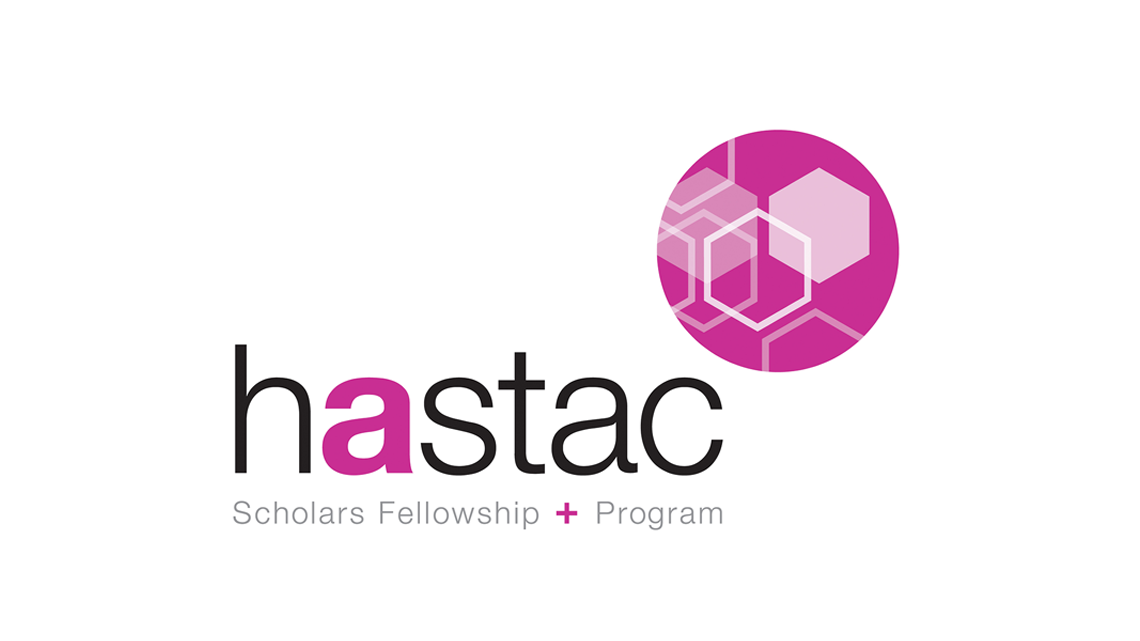Announcing the 2020-2022 HASTAC Scholars

The Institute for Digital Research in the Humanities is pleased to announce the 2020-2022 HASTAC Scholars cohort.
HASTAC (Humanities, Arts, Science, and Technology Alliance and Collaboratory) Scholars Program gives undergraduate and graduate students an opportunity to develop their Digital Humanities interests and showcase their DH research and projects to a broader audience. Students can use the two year period to learn more about DH, develop a specific digital project, hone their technical skills, or pursue a project that intersects with their area of research and Digital Humanities.
The IDRH has supported seventeen students through the program since 2011.
The 2020-2022 HASTAC Scholars
Carola Emkow
Center for Latin American and Caribbean Studies
Carola Emkow is a first year master's student with the Center for Latin American and Caribbean Studies. She holds a Magistra Artium in English philology and Romance Studies (2001, Free University of Berlin) and a PhD in linguistics (2007, La Trobe University). As a trained linguist working in language description and documentation, she continuously strives to bring together her past, present and future research with digital indigenous storytelling projects with her ultimate goal being the creation of a digital home for stories (`Worlds Words Voices’ ) told by native speakers in indigenous languages from Guatemala (Kaqchikel, K’iche’, Q’eqchi’), Mexico (Tlapanec) and Papua New Guinea (Bena Bena, Yuwei, Imbongu). The stories will inform on production (of food and artefacts), spirituality, ethnohistory, literature (oral and written), health and migration. Stories will be audio-visually represented. As a HASTAC Scholar, she wants to learn and discuss digital language documentation in terms of techniques, ethics and politics, since all these topics are relevant in a digital indigenous language revitalization project. She wants to expand her knowledge through guided reading, attendance of virtual events, and receiving training in methods and tools used in digital humanities
Nic Redford
History, Anthropology, and Indigenous Studies in Latin America
Nic Redford is an undergraduate student with a double major in History and Anthropology with a minor in Indigenous Studies in Latin America. As a HASTAC Scholar, he will investigate ways students form research questions and use digital sources to answer them. While search engines have greatly facilitated ways in which students find sources and provided wider access to sources, it also facilitates finding outlier sources that only support a student’s preconceived notion about a topic. In short, he hopes to research whether students are using digital humanities to challenge their preconceived ideas about particular topics, or rather to simply reaffirm what they already believe to be true.
Paul Thomas
Film & Media Studies, Library & Information Sciences
Paul Thomas is a library specialist at Watson Library, a graduate certificate student in Film and Media Studies, and a PhD student at Emporia State University's School of Library and Information Management. He is fascinated by the intersection of information science and online culture, and his main area of interest is Wikipedia. In particular, he is interested in studying the behavior of Wikipedia editors who openly consider themselves fans of pop culture media franchises (e.g., Star Wars, Harry Potter, Lord of the Rings, Pokémon). Despite their many accomplishments on the site, the information behaviors of these fan editors have almost completely been ignored by mainstream scholarship. During his tenure as a HASTAC Scholar, he will be working on writing a comprehensive literature review about Wikipedia and its overlap in fandom studies, this lit review would be used in his future PhD dissertation.
Brendan Williams-Childs
English
Brendan Williams-Childs is a first-year graduate student pursuing an MFA with the English Department. His DH research will be in support of the HathiTrust Research Center where he will work with scholars on ways to integrate the understudied fiction texts in the Black Book Interactive Project into larger humanities research, helping to bridge the digital divide for traditionally underrepresented textual communities.
Hipatia Medina-Ágreda
Department of Spanish and Portuguese
Sponsored by the department of Spanish & Portuguese
Hipatia Medina-Ágreda is a PhD student with the School of Languages, Literatures, and Cultures in the Department of Spanish and Portuguese. She was raised in the border town of Nuevo Laredo, Tamaulipas, México. The core questions motivating her research are: (a) how daily life and spiritual cultural expression makes us (re)think violence on the border; and (b) whether these shape our own perspectives of representation or invite us to challenge outsider’s representation of the border’s reality. Her digital humanities project and research consists of creating: 1) a timeline of the different stages/expressions of violence; 2) mapping Nuevo Laredo, Tamaulipas and Laredo, Texas to show how different socioeconomical groups navigate in this area; and 3) mapping different representations of the United States-Mexico border. As member of the HASTAC cohort, she would like to acquire technological and organizational skills with various tools that would allow her to create accessibility to the digital archive of this research.